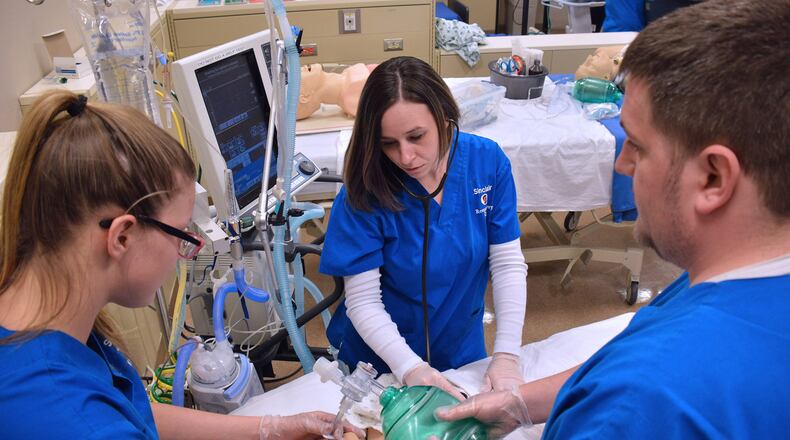Georgia’s economy will keep slowing in the coming year, but should avoid recession, according to an economic forecast released Wednesday.
The state should add about 65,200 jobs this year, and 53,500 new jobs the year after, said Rajeev Dhawan, director of the Georgia State Economic Forecasting Center.
The stronger sectors in Georgia will be the ones depending on "domestic demand" — hospitality, education, healthcare and construction, Dhawan said at the center's quarterly conference.
In contrast, sectors that rely on international trade face the stiffest headwinds, he said.
Delta Air Lines, for example, has seen its U.S business grow 8.8% this year, while its Asian and Pacific business was up just 3.1%, Dhawan said.
In the next year, Georgia will see weak growth – or even job losses – in manufacturing, technology and some trade-related companies, he said.
Counteracting that is a tailwind provided by the Federal Reserve in the form of lower short-term interest rates, he said. "Fed rate cuts will alleviate the pain somewhat, and relatively clear skies will emerge, but without a rainbow."
The Fed cut its benchmark short-term rates this year for the first time in more than a decade. Dhawan said he expects the Fed to cut again in September and December. Lower rates make it cheaper for companies and consumers to borrow money, which could spur more spending and renew growth.
Georgia has been steadily adding jobs since 2010 as part of a national expansion that is now the longest on record in the United States. However, the pace of growth has been slowing.
Some experts have begun wondering whether the expansion soon could be tipped into recession – undermined by a number of factors, especially the decelerating global economy, but also tariffs and other trade disruptions.
"It's like 'Murder on the Orient Express,'" Dhawan said. "There are 13 suspects and only one is innocent."
A number of signs have been flashing red, especially the so-called inversion of the yield curve.
That is when the interest rate on a short-term bond is higher than on a long-term bond. It often signals that investors are concerned about the economy in the near term.
Healthy economic growth depends on companies making investments that will eventually produce jobs and growth, Dhawan said. But President Trump’s war of words and tariffs with China has repeatedly blind-sided the business executives who must decide how and where to invest.
“This is uncertainty, and uncertainty leads to pullbacks in capital expenditures,” Dhawan said. “The one ray of sunshine is tech investment. If that starts to come down, you’ll have a recession.”
Job growth in Georgia, past and predictions
2017: 75,700
2018: 89,000
2019*: 65,200
2020*: 53,500
2021*: 48,200
*Projected growth
Source: Georgia State University Forecasting Center






